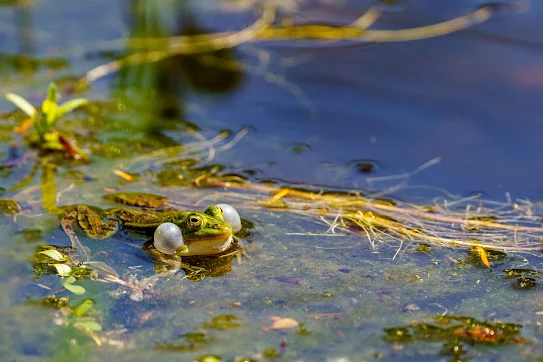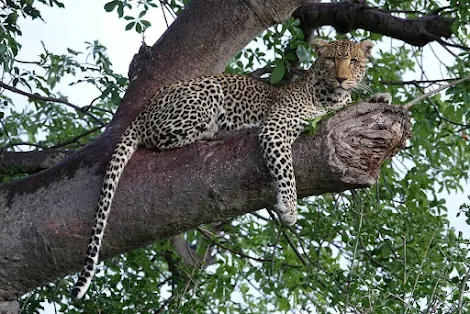Changing Ecosystem: A Modern-Day
Concern
As the world continues to evolve,
ecosystems around the world are undergoing significant changes. These conversions
are driven by a variety of factors, both natural and man-made. In this blog, we
will try to explore the ideal reasons behind the changing ecosystems, their impacts
on biodiversity, and what can be done to relieve these changes.
Understanding Ecosystem Dynamics
Ecosystems are communities of living organisms interacting with their
physical environment. These interactions create a strong balance that allows
life to thrive. However, when external pressures destroy this balance,
ecosystems can become unstable, leading to harmful consequences for both nature
and humanity.
Major Causes of Ecosystem Changes
1. Global Warming
Rising global temperatures, caused largely by human activities such as burning fossil fuels, deforestation, and industrialization, have led to significant changes in ecosystems worldwide. One of the most significant factors of changing ecosystems today is climate change. The increase in global temperatures is causing shifts in weather patterns, leading to extreme events like hurricanes, floods, and droughts. As a result, many species are forced to move or become extinct due to habitat loss.
- Deforestation
and Loss of Habitat
Human activities, such as cutting trees, urbanization,
and use of land for agriculture purpose, are badly reducing natural habitats.
Forests, wetlands, and coral reefs are particularly vulnerable, leading to a
decrease in biodiversity and destroying the balance of ecosystems.
- Pollution and
Ecosystem
Air, water, and soil pollution have damaging effects on
ecosystems. Industrial waste, plastic pollution, and chemicals like pesticides
are one of the big cause of poisoning natural environments, affecting the
health of plants, animals, and microorganisms. These pollutants accumulate in
the food chain, posing risks to wildlife and humans.
- Overexploitation
of Resources
Overfishing, hunting, and the use of natural resources
for economic purpose are decreasing populations of species that use it, and
damaging ecosystems. This exploitation breaks the food chains and threatens the
survival of many species, leading to imbalances in the ecosystem.
The Impact of Ecosystem Changes on
Biodiversity
As ecosystems change, biodiversity—the variety of life in a particular
habitat—suffers. Some species adapt to the new conditions, while others cannot
survive the fast changes. Loss of biodiversity can weaken ecosystems, making
them less active to future environmental challenges. For example, the decline
in bee populations due to habitat loss and pesticides is affecting pollination,
a critical process for plant reproduction and food production.
Diversity, aim to protect endangered species and restore degraded ecosystems
recognition of biodiversity's importance has made it a central theme in
environmental debates.
The Role of Human and Ecosystem
While humans are responsible for many of the changes occurring in
ecosystems, we also have the power to protect and restore them. Conservation
efforts, sustainable practices, and reforestation are some ways to counteract
the damage done. Additionally, raising awareness about the importance of
ecosystems and biodiversity can encourage individuals and communities to take
action.
What Can Be Done to Prevent Further
Ecosystem Damage?
- Support
People can contribute by supporting sustainable
products and practices that reduce deforestation, pollution, and
overexploitation of natural resources.
- Promote
Conservation Efforts
Supporting organizations that work to protect
endangered species and restore damaged ecosystems can make a significant
difference in preserving biodiversity.
- Reduce Carbon
Footprint
Decreasing energy consumption, using renewable energy,
and reducing waste are all way that individuals and industries can take to fight
climate change and its impact on ecosystems.
- Participate in
Reforestation Initiatives
Planting trees and supporting reforestation projects
can help restore ecosystems and provide habitats for wildlife.
Conclusion: Ecosystems are in our
hands
Ecosystems have become a hot topic of discussion because they are crucial
to the survival of life on Earth, and their health is rapidly declining due to
human activities. The changing ecosystems we witness today are a result of
human actions, but it’s not too late to make a positive impact. Ecosystems are
in our hand, by understanding the causes of ecosystem changes and taking
proactive measures, we can help restore balance and protect biodiversity for
future generations.




Comments
Post a Comment